Sir Charles Mackerras - Handel: Saul (1995)
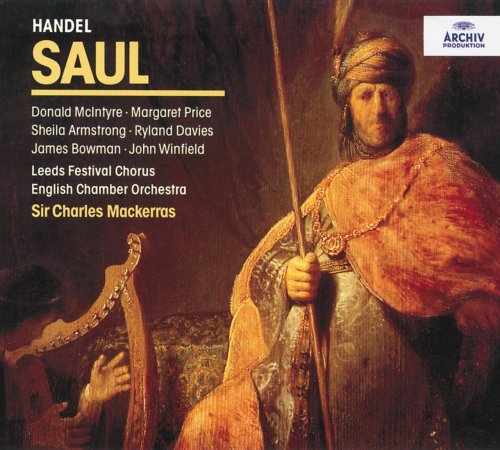
Artist: Sir Charles Mackerras
Title: Handel: Saul
Year Of Release: 1995
Label: ARCHIV Produktion
Genre: Classical
Quality: FLAC (image + .cue, log, artwork)
Total Time: 02:57:16
Total Size: 808 MB
WebSite: Album Preview
Tracklist:Title: Handel: Saul
Year Of Release: 1995
Label: ARCHIV Produktion
Genre: Classical
Quality: FLAC (image + .cue, log, artwork)
Total Time: 02:57:16
Total Size: 808 MB
WebSite: Album Preview
CD 1
Symphony
1-1 1. Allegro
1-2 2. Larghetto
1-3 3. Allegro
1-4 4. Andante Larghetto
Act I
Scene 1
1-5 1. Chorus: "How Excellent Thy Name, Oh Lord"
1-6 2. Air (Soprano): "An Infant Rais'd By Thy Command"
1-7 3. Trio: "Along The Monster Atheist Strode"
1-8 4. Chorus: "The Youth Inspir'd By Thee, Oh Lord"
1-9 5. Chorus: "How Exellent Thy Name, Oh Lord"
Scene 2
1-10 6. Recitative: "He Comes, He Comes!" / 7. Air: "Oh God-Like Youth! By All Confess'd"
1-11 8. Recitative: "Behold, Oh King, The Brave, Victorious Youth"
1-12 9. Air: "Oh King, Your Favours With Delight I Take"
1-13 10. Recitative: "Oh Early Piety! Oh Modest Merit!"
1-14 11. Air: "What Abject Thoughts A Prince Can Have!"
1-15 12. Recitative: "Yet Think, On Whom This Honour You Bestow"
1-16 13. Air: "Birth And Fortune I Despise"
1-17 14. Recitative: "Go On, Illustrious Pair!"
1-18 15. Air: "While Yet Thy Tide Of Blood Runs High"
1-19 16. Recitative: "Thou, Merab, First In Birth, Be First In Honour"
1-20 17. Air: "My Soul Rejects The Thought With Scorn"
1-21 18. Air: "See, With What Scornful Air"
1-22 19. Air: "Ah, Lovely Youth!"
1-23 20. Symphony
1-24 21. Recitative: "Already See The Daughters Of The Land"
Scene 3
1-25 22. Chorus Of Women: "Welcome, Welcome, Mighty King!"
1-26 23. Accompagnato: "What Do I Hear? - Am I Then Sunk Sol Low"
1-27 24. Chorus: "David His Ten Thousands Slew"
1-28 25. Accompagnato: "To Him Ten Thousands, And To Me But Thousand"
1-29 26. Air: "With Rage I Shall Burst His Praises To Hear!"
Scene 4
1-30 27. Recitative: "Imprudent Women!"
1-31 28. Air: "Fell Rage And Black Despair Possess'd"
1-32 29: Recitative: "This But The Smallest Part Of Harmony"
1-33 30: Accompagnato: "By Thee This Universal Frame"
CD 2
Scene 5
2-1 31. Recitaive: "Rack'd With Infernal Pains, Ev'n Now The King Comes Forth"
2-2 32. Air: "Oh Lord, Whose Mercies Numberless"
2-3 33. Symphony
2-4 34. Recitative: "Tis All In Vain; His Fury Still Continues"
2-5 35. Air: "A Serpent, In My Bosom Warm'd"
2-6 36. Recitative: "Has He Escap'd My Rage?"
2-7 37. Air: "Capricious Man, In Humour Lost"
Scene 6
2-8 38. Accompagnato: "Oh Filial Piety! Oh Sacred Friendship"
2-9 39. Air: "No, Cruel Father, No!"
2-10 40. Air: "Oh Lord, Whose Providence Ever Wakes"
2-11 41. Chorus: "Preserve Him For The Glory Of Thy Name"
Act II
Scene 1
2-12 42. Chorus: "Envy! Eldest Born Of Hell!"
Scene 2
2-13 43. Recitative: "Ah! Dearest Friend, Undone By Too Much Virtue!"
2-14 44. Air: "But Sooner Jordan's Stream, I Swear"
2-15 45. Recitative: "Oh Strange Vicissitude!"
2-16 46. Air: "Such Haugthy Beauties Rather Move Aversion"
2-17 47. Recitative: "My Father Comes: Retire, My Friend"
Scene 3
2-18 48. Recitative: "Hast Thou Obey'd My Orders"
2-19 49. Air: "Sin Not, Oh King, Against The Youth"
2-20 50. Air: "As Great Jehovah Lives, I Swear"
2-21 51. Air: "From Cities Storm'd, And Battles Won"
Scene 4
2-22 52. Recitative: "Appear, My Friend"
2-23 53. Air: "Your Words, Oh King, My Loyal Heart With Double Ardour Fire"
2-24 54. Recitative: "Yes, He Shall Wed My Daughter!"
Scene 5
2-25 55. Recitative: "A Father's Will Has Authoriz'd My Love"
2-26 56. Duet: "Oh Fairest Of Then Thousand Fair"
2-27 57. Chorus: "Is There A Man, Who All His Ways Directs"
2-28 58. Symphony
Scene 6
2-29 59. Recitative: "Thy Father Is As Cruel, And As False, As Thou Art Kind And True"
2-30 60. Duet: "At Persecution I Can Laugh"
Scene 7
2-31 61. Recitative: "Whom Dost Thou Seek?"
2-32 62. Air: "No, No, Let The Guilty Tremble"
Scene 8
2-33 63. Recitative: "Mean As He Was, He Is My Brother Now"
2-34 64. Air: "Author Of Peace, Who Canst Controul Ev'ry Passion Of The Soul"
Scene 9
2-35 65. Symphony
2-36 66. Accompagnato: "The Time At Length Is Come"
Scene 10
2-37 67. Recitative: "Where Is The Son Of Jesse?"
2-38 68. Chorus: "Oh Fatal Consequence Of Rage"
CD 3
Act III
Scene 1
3-1 69. Accompagnato: "Wretch That I Am! Of My Own Ruin Author!"
3-2 70. Accompagnato: "Tis Said, Here Lives A Woman"
Scene 2
3-3 71. Recitative: "With Me What Would'st Thou?"
3-4 72. Air: "Infernal Spirits, By Whose Pow'r"
Scene 3
3-5 73. Accompagnato: "Why Hast Thou Forc'd Me From The Realms Of Peace"
3-6 74. Symphony
Scene 4
3-7 75. Recitative: "Whence Comest Thou?"
3-8 76. Air: "Impious Wretch, Of Race Accurst!"
3-9 77. Dead March
Scene 5
3-10 78. Chorus: "Mourn, Israel, Mourn, Thy Beauty Lost"
3-11 79. Air (Tenor): "Oh Lt It Not In Gath Be Heard"
3-12 80. Air (Soprano): "From This Unhappy Day No More"
3-13 81. Air: "Brave Jonathan His Bow Ne'er Drew"
3-14 82. Chorus: "Eagles Were Not So Swift As They"
3-15 83. Air (Soprano): "In Sweetest Harmony They Liv'd"
3-16 84. Solo (David) & Chorus: "Oh Fatal Day! How Low The Mighty Lie!"
3-17 85. Recitative: "Ye Men Of Judah, Weep No More!"
3-18 86. Chorus: "Gird On They Sword, Thou Man Of Might"
Charles Mackerras was known for his broad repertoire, expertise in Czech music, and use of period performance practices with modern orchestras. Born an American, he was taken to Australia as an infant by his family. He studied oboe, piano, and composition at New South Wales Conservatorium, Sydney. He joined the Sydney Symphony Orchestra as an oboist in 1945, and in that year also conducted the orchestra for the first time.
Mackerras traveled to Europe in 1947 and became a member of the Sadler's Wells opera company orchestra. While in England, he won a British Council Scholarship to become a conducting student of Vaclav Talich at the Academy of Fine Arts in Prague. During his studies in Czechoslovakia, he developed a lifelong interest in the music of Slavonic composers, especially Leos Janácek. After his formal training, he returned to Sadler's Wells, where he made his London debut leading Johann Strauss' Die Fledermaus, and remained on the company's conducting staff until 1954. In 1951 he conducted the British premiere of Janácek's opera Kát'a Kabanová (1919-1921).
Following his engagement as principal conductor of the BBC Symphony Orchestra in 1954-1956, Mackerras guest-conducted orchestras in Britain and throughout Europe. In 1963 he conducted at Covent Garden for the first time, leading Shostakovich's opera Katerina Izmaylova (the revised version of Lady Macbeth of Mtsensk); thereafter, he frequently conducted at the house. From 1966 to 1970 he was the first conductor at the Hamburg State Opera. In 1970 he assumed the position of music director at Sadler's Wells, which changed its name to the English National Opera in 1974. Mackerras returned to Australia in 1973 to conduct the inaugural concert of the new Sydney Opera House and also conducted the production of Mozart's The Magic Flute during that opening year. He made his Metropolitan Opera debut in 1974 with Gluck's Orfeo et Eurydice.
Mackerras' reputation as a specialist in the music of the Classical era began with his Sadler's Wells production of Mozart's The Marriage of Figaro in 1965, in which he used the results of the burgeoning research into authentic performing styles to correctly perform appogiaturas, and to have the singers ornament their parts in accordance with the practices of Mozart's day. These and subsequent performances and recordings have been highly influential in shaping the current approach to earlier music, as have Mackerras' editions of Handel's music. Meanwhile, Mackerras thoroughly researched the music of Janácek (the published editions of which were unusually prone to errors) and both produced and recorded accurate editions of the Czech composer's music. Mackerras died from cancer in London on July 14, 2010. -- Joseph Stevenson
Mackerras traveled to Europe in 1947 and became a member of the Sadler's Wells opera company orchestra. While in England, he won a British Council Scholarship to become a conducting student of Vaclav Talich at the Academy of Fine Arts in Prague. During his studies in Czechoslovakia, he developed a lifelong interest in the music of Slavonic composers, especially Leos Janácek. After his formal training, he returned to Sadler's Wells, where he made his London debut leading Johann Strauss' Die Fledermaus, and remained on the company's conducting staff until 1954. In 1951 he conducted the British premiere of Janácek's opera Kát'a Kabanová (1919-1921).
Following his engagement as principal conductor of the BBC Symphony Orchestra in 1954-1956, Mackerras guest-conducted orchestras in Britain and throughout Europe. In 1963 he conducted at Covent Garden for the first time, leading Shostakovich's opera Katerina Izmaylova (the revised version of Lady Macbeth of Mtsensk); thereafter, he frequently conducted at the house. From 1966 to 1970 he was the first conductor at the Hamburg State Opera. In 1970 he assumed the position of music director at Sadler's Wells, which changed its name to the English National Opera in 1974. Mackerras returned to Australia in 1973 to conduct the inaugural concert of the new Sydney Opera House and also conducted the production of Mozart's The Magic Flute during that opening year. He made his Metropolitan Opera debut in 1974 with Gluck's Orfeo et Eurydice.
Mackerras' reputation as a specialist in the music of the Classical era began with his Sadler's Wells production of Mozart's The Marriage of Figaro in 1965, in which he used the results of the burgeoning research into authentic performing styles to correctly perform appogiaturas, and to have the singers ornament their parts in accordance with the practices of Mozart's day. These and subsequent performances and recordings have been highly influential in shaping the current approach to earlier music, as have Mackerras' editions of Handel's music. Meanwhile, Mackerras thoroughly researched the music of Janácek (the published editions of which were unusually prone to errors) and both produced and recorded accurate editions of the Czech composer's music. Mackerras died from cancer in London on July 14, 2010. -- Joseph Stevenson
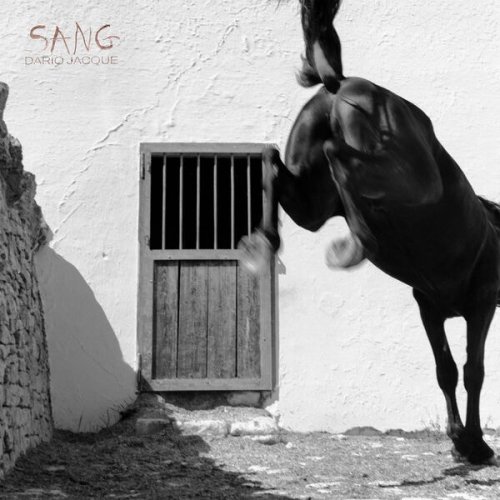
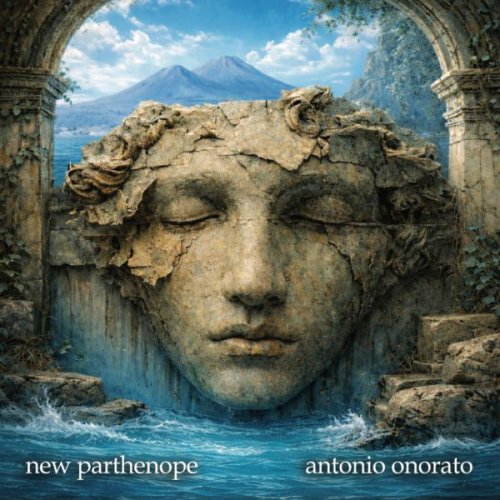
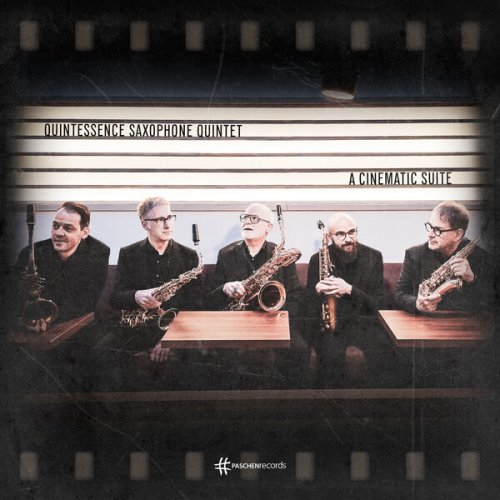

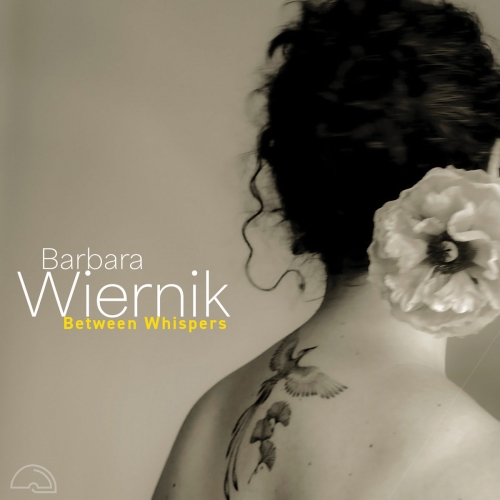
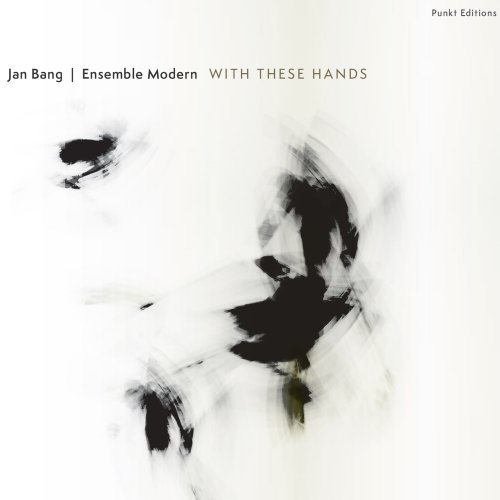
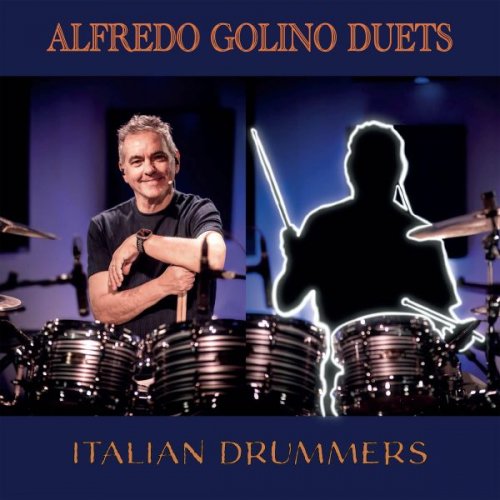
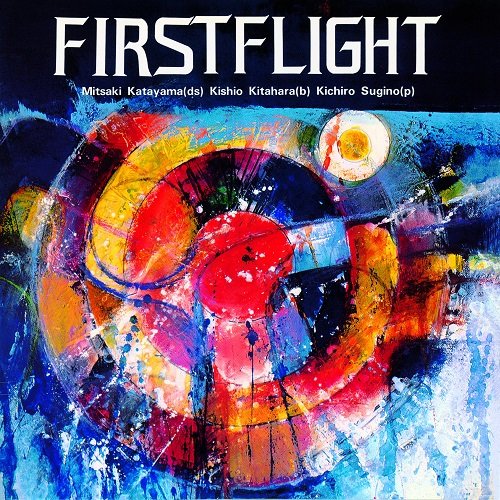
![James Fernando - Philly 3 (2026) [Hi-Res] James Fernando - Philly 3 (2026) [Hi-Res]](https://img.israbox.com/img/2026-02/06/x1z1d5tgfw7831grgh5do6jls.jpg)